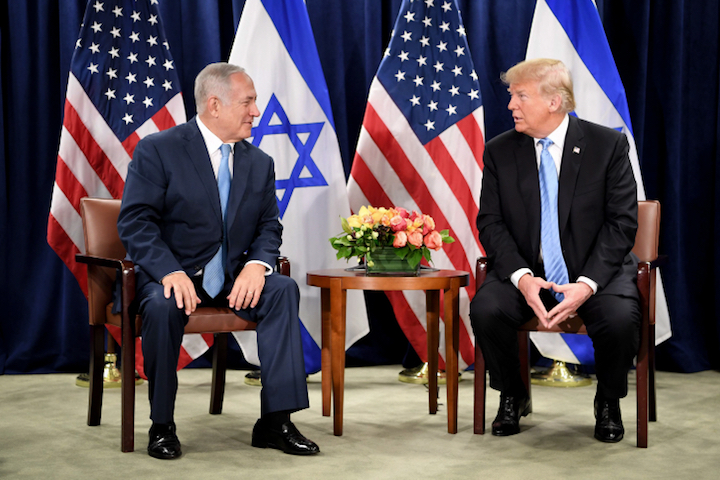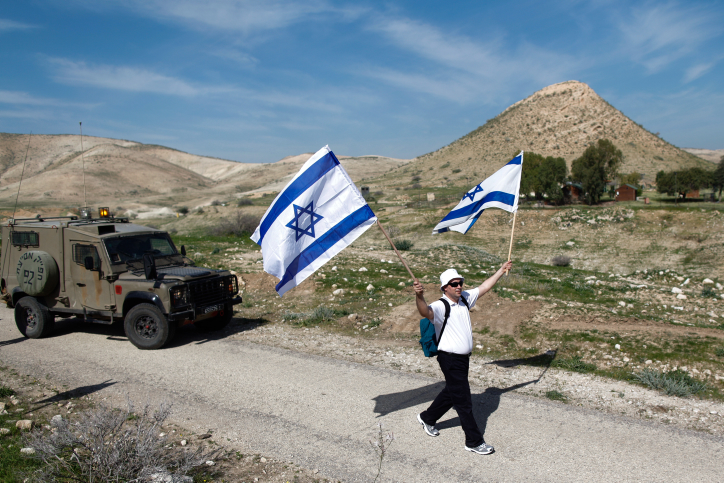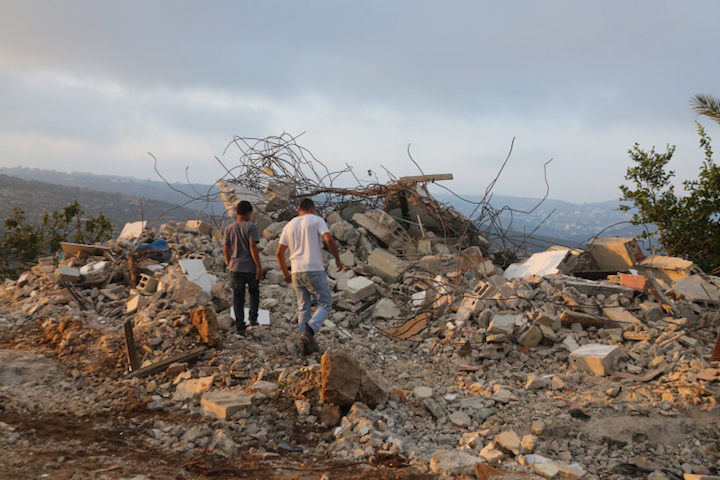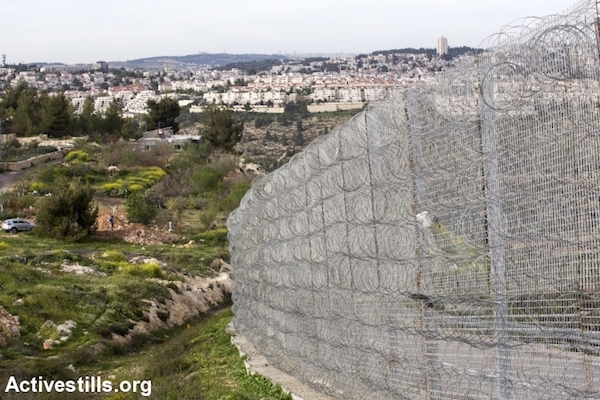Although he may publicly reiterate his support for a two-state solution, Netanyahu’s vision for a future Palestinian state is one that would lack nearly all sovereignty.

U.S. President Donald Trump said that he favors two states as a solution to the Israeli-Palestinian conflict, during a press conference alongside Israeli Prime Minister Benjamin Netanyahu in New York on Wednesday.
In response to Trump’s comments, which signaled a change from his previous stance, according to which he would back whichever solution Israelis and Palestinians support, Netanyahu told reporters that “Everyone defines the term ‘state’ differently. I am willing for the Palestinians to have the authority to rule themselves without the capability to harm us.” Israel, said Netanyahu, will not “relinquish security control west of the Jordan.”
One cannot regard Netanyahu’s statements, ostensibly made in good faith, without considering the context in which they were said — that is, in reaction to the president’s statement, which Netanyahu did not wish to contradict. We must, however, remember that only a month ago that same Netanyahu said he sees “no urgency” in promoting any sort of peace deal, and that “peace is made with the strong” – something that clearly does not reflect the Palestinians’ political situation at present.
Yet if we are to take Netanyahu seriously, ignoring the ways in which he has made a career out of dismantling the two-state solution, and even if we remember that Trump’s understanding of the peace process includes taking issues such as the status of Jerusalem and Palestinians refugees off the table, we still need to understand what he means when he says that Israel would maintain “security control” of the entire territory west of the Jordan River.
It’s an important issue to discuss, not only because Netanyahu has been repeating this phrase for the past several of years, but because we have a great deal of experience to help us learn what Israel defines as “security control” over supposedly autonomous Palestinian territories. Here are just a handful of examples.
Complete control over borders. The Gaza precedent shows us just how far Israel is willing to go in using the excuse of “security needs,” while in reality collectively punishing millions of people in the Strip for the decisions and actions of the Hamas government. Control over borders — which will likely be even more entrenched in the West Bank should Netanyahu succeed in keeping the Jordan Valley in Israel’s hands — includes extreme limitations on both import and export of products, thus strangling the Palestinian economy (as noted just this week by the World Bank report).

It also entails controlling the movement of people, as well as deciding who gets to work, study, receive medical care, or do something as simple as go on vacation. Together, these policies dictate a great deal of what Palestinian life looks like, making Israel the supreme ruler of the territories — all under the pretext of security.
Restricting movement. For almost 30 years, Israel has been adding more and more restrictions on movement between the West Bank and Gaza Strip, for alleged security reasons. Palestinians cannot meet family members, start their own business, or receive medical care on the “other side” of the would-be Palestinian state without Israeli permission. Furthermore, as Israel attempts to bisect the West Bank with settlements, who is to say that Netanyahu’s vision of security control won’t include checkpoints in between Palestinian areas inside the West Bank?
Destroying livelihoods. As part of the siege on Gaza, Israel has been destroying crops on the Palestinian side of the fence, limiting access to fishing zones, and even resorting to opening fire on farmers and fishermen, sometimes lethally. In the West Bank, security reasons are used to keep Palestinians away from their own agricultural land, which is often eventually placed under Israeli control.
Night raids. According to the Oslo Accords, Israeli soldiers are only allowed in Palestinian cities in cases of a “hot pursuit” of a suspect. In reality, every single night Israeli soldiers awaken Palestinian cities and villages, pulling dozens of Palestinians from their beds and arresting them. Detainees include men and women, young and old – even members of the Palestinian parliament. They are all tried in military courts, and sometimes held without trial in administrative detention.

Home demolitions. In recent years Israel has revived and old custom of collective punishment by demolishing the houses of family members of Palestinians who carried out violent attacks against Israelis. In the name of security, innocent people are losing their homes.
Slashing funds. Both Israel’s control of borders and the Oslo Accords have created a reality in which Israel collects all sorts of taxes “on behalf” of the Palestinian Authority. Israel will often withhold these funds in order to punish Palestinians for violence or diplomatic moves it deems threatening. Today, Israel is cutting millions from the PA’s in order to stop the money from reaching families of prisoners.
Building a new park. A smaller, day-to-day example of how security considerations are used for Israel’s benefit. Israeli authorities are currently at work moving a checkpoint between the village of al-Walajeh and Jerusalem by a few hundred meters. The official reason is security. The real reason, however, is that the village includes a beautiful spring, which the villagers often visit for leisure. The Jerusalem municipality recently announced a plan to designate the area as a new park for Israelis, meaning that the new location of the checkpoint will help ensure that Palestinians can only look their spring from afar.

These are only a handful of examples. If Netanyahu does move forward on his stated agenda, we would do well to remember exactly what “security control” means for Palestinians, and why they would likely vehemently oppose such an idea.
This is not to say that Israeli citizens don’t deserve to enjoy security. There is no question that any end to the occupation must promise peace, security, equality, and freedom to all those who live on this land. But security arrangements can be agreed upon between two sovereign states, ensuring that both their peoples’ interests are considered – rather than the interests of one people. In the process, negotiators would have to make sure that “security” is not used as a cover for a more sinister agenda.
A solution based on two states is, of course, not the only option. Israelis and Palestinians can live under a single state in which no group of people is more entitled to security and equality. Either of these solutions is legitimate, as long as we put an end to the illegitimate military rule over millions of Palestinians who are denied the most basic of human and civil rights.

